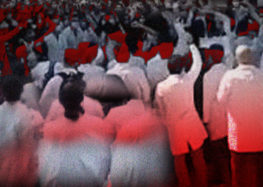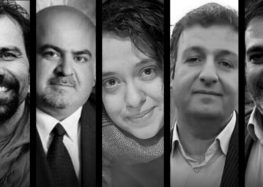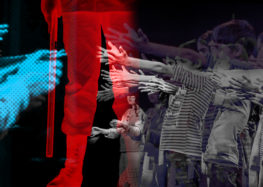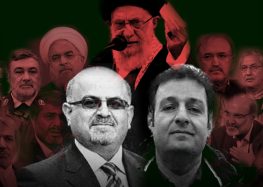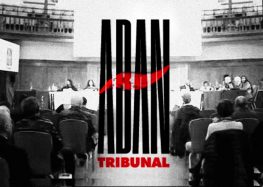Rouhani: Delivering Human Rights After the Election
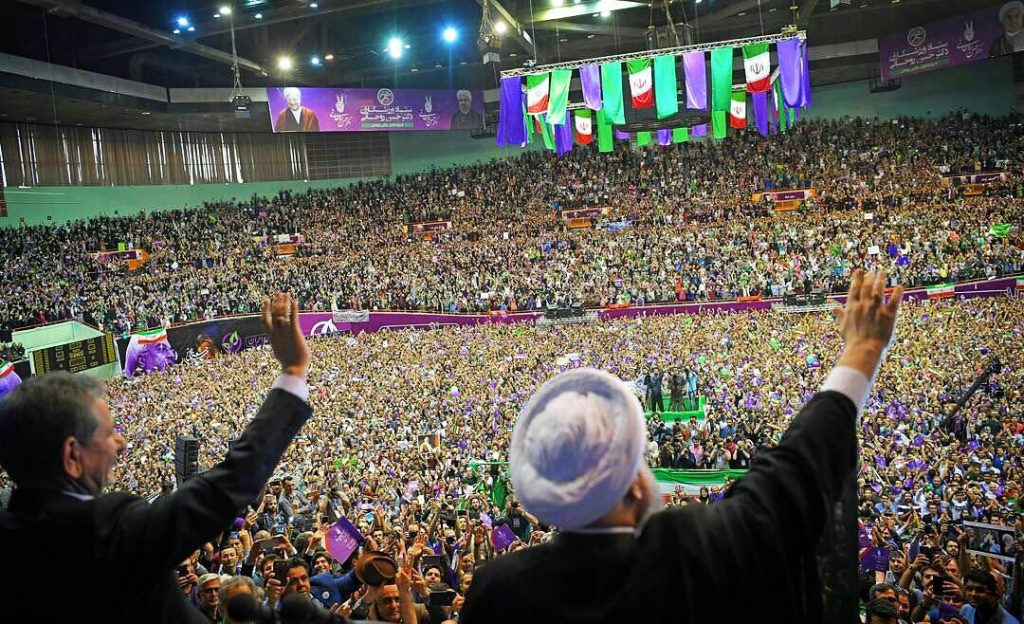
Rouhani’s pathway to fulfill his promises: Utilize his power, negotiate the system, hold rights violators responsible, engage and empower civil society
The re-election of President Hassan Rouhani on May 19, 2017 was due in large part to the perception by the Iranian citizenry that his government would do more to improve human rights in Iran than his rivals—an outcome clearly desired by a majority of voters.
During Rouhani’s campaign rallies, not only did he make explicit references to issues of political and social freedom and promises to uphold such freedoms in his second term, his supporters also repeatedly made clear their demands for improvements in human rights.
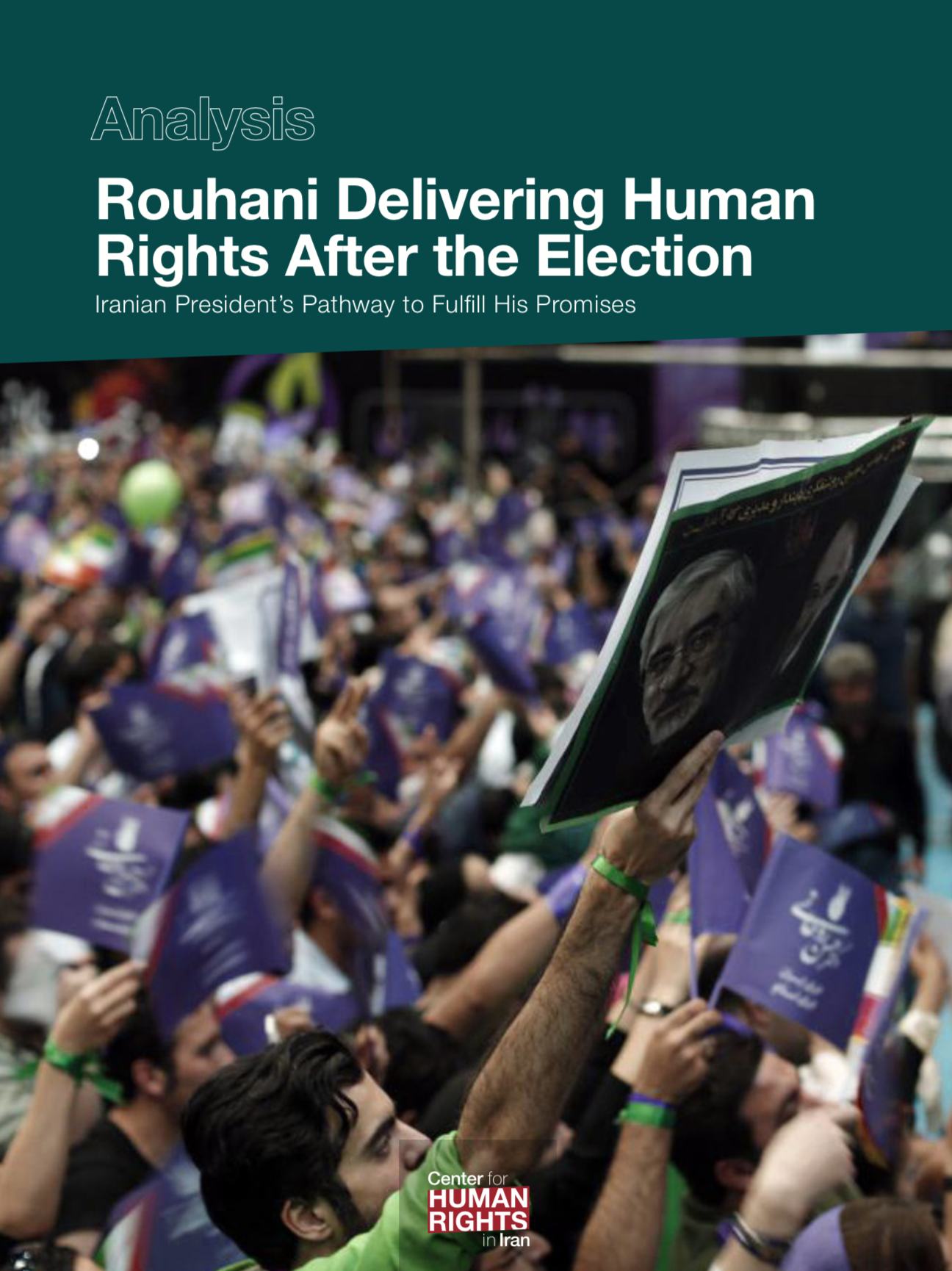
Rouhani:Delivering Human Rights After the Election.pdf (Download the PDF file)
Despite Iran’s tradition of giving the incumbent a second term, Rouhani’s re-election was uncertain. Many Iranians struggling with high unemployment and other economic problems did not see any improvement in their daily lives from Rouhani’s signature achievement—the nuclear deal and easing of international sanctions. Yet even though the other candidates offered subsidies and populist proposals, and Rouhani’s economic proposals were modest, he won by a large margin—far greater than his win in 2013. In addition to his rejection of populist economics, Rouhani was the only candidate that talked about human rights—and the more he focused on this issue, the more his support coalesced and strengthened.
The implication is clear: the Iranian electorate was galvanized by his statements of support for social and political freedoms. This cannot be lost on hardliners, who, while occupying the main institutional levers of power in Iran, face a young, growing and digitally connected population who at every electoral opportunity has largely rejected the hardliners’ vision.
Historically, whenever reformists or moderates have secured electoral victories, hardliners who predominate in the country’s judiciary and security and intelligence organizations have responded with increased repression. This occurred after the election of Mohammad Khatami in 1997 and 2001, the election of reformers to parliament in 2000 and 2016, and the election of Rouhani to his first term in 2013.
It remains to be seen if Rouhani is prepared to navigate the backlash likely to come. Were his freedom and rights statements during the campaign political expediency, or a committed part of his political agenda? Will he have a comprehensive and practical policy and strategy for negotiating with un-elected centers of power who have resisted any meaningful improvement in human rights? Does he have the political will and ability to persuade and enlist the country’s supreme leader, Ali Khamenei, to support him in this endeavor, as he did during the nuclear negotiations?
During Rouhani’s first term, he did not improve the human rights situation in the country. Pledges of greater political and social freedoms he made in 2013 were left unfulfilled in many areas. During this time, Rouhani and his supporters argued that his focus and political capital must be applied to resolving the nuclear crisis. His inaction on domestic issues, particularly human rights, was rationalized as a necessary product of this prioritization.
Yet the issue of the nuclear deal is now behind him. At this point, no major power center in Iran appears to wish it undone. In addition, the overwhelming support for Rouhani extended by the country’s intellectuals, artists, journalists, former political prisoners, and even the Green Movement leaders under house arrest will leave no excuse for Rouhani to postpone acting on promises that were clearly addressed by a sizable portion of Iranian civil society during the election season.
In order to be successful, however, Rouhani will have to use every tool at his disposal as president:
- Rouhani must ensure that the institutions under his control—such as the Ministry of Intelligence, Ministry of Labor and Ministry of Culture—are in sync with his agenda and ready and willing to carry it out. This particularly applies to Rouhani’s Ministry of Intelligence, which is currently one of the major human rights violators in Iran.
- He must utilize his power as the president and, in his capacity as the enforcer of the country’s constitution, defend the people’s legal rights and publicly communicate with those institutions committing human rights violations (such as the judiciary and parallel intelligence forces that include the Revolutionary Guards’ Intelligence Organization) that they must cease such violations.
- Rouhani must work with Iran’s elected and unelected bodies to advance the pledges he has made—sending bills to parliament, negotiating with the Revolutionary Guard and the country’s supreme leader, and writing and speaking out publicly—so that the public will know who is behind the human rights violations. This will put pressure on the institutions committing the abuses domestically and internationally.
- Rouhani must also engage, empower and protect civil society, including activists and human rights defenders. He must allow them to engage in legislative processes, facilitating their input and consultation in all areas of state policy as well as their ability to monitor the performance of the government in any area of concern. He should allow them to engage robustly both domestically and internationally, facilitating their ability to advance his stated agenda of greater protection of citizens’ rights.
Also key to the outcome of Rouhani’s efforts on human rights will be the role of the international community, particularly the European Union. Rouhani will be reaching out to EU member countries during his second term to strengthen economic and trade ties and attract foreign investment. These countries have also expressed keen interest in building trade and business ties with Iran.
Yet in tandem with seeking economic ties, EU member countries should incorporate human rights concerns as a fundamental element of their overall policy towards Iran. Such a dual emphasis will not only signify the imperative of human rights improvements, it will also be essential to secure an environment in Iran where foreign businesses can operate in a sustainable and responsible way.
While there are many areas in which rights violations need to be addressed in Iran, the major human rights demands that the Iranian people voiced to Rouhani during the election and which he himself made a centerpiece of his campaign—and which should thus be a key focus of the international community—include:
- Ending the house arrests of the Green Movement leaders
- Ending the politically motivated arrests of journalists and activists
- Improving women’s rights
- Improving minority rights
- Expanding social and cultural freedoms
- Addressing labor rights violations
Ending the House Arrests of the Green Movement Leaders
During Rouhani campaign rallies and street celebrations following his victory, supporters chanted for the freedom of the three Green Movement leaders, Mir Hossein Mousavi, Mehdi Karroubi and Zahra Rahnavard, who have been under house arrest since February 2011 for their support of the peaceful protests that followed Iran’s disputed 2009 presidential election. When asked about the house arrests on May 16, Rouhani replied: “We will go to the voting booths to end captivity.”
Ending the Politically Motivated Arrests of Journalists and Activists
President Rouhani criticized the hardline Islamic Revolutionary Guards Corps (IRGC) during his 2017 campaign rallies, arguing they are violating their mandate by interfering in politics. Yet he has done nothing to end the security establishment’s—including the IRGC’s Intelligence Organization, the judiciary, and the administration’s own Intelligence Ministry—ongoing arrests and detainments of journalists and activists.
“We want freedom of the press,” he said on May 9 to a cheering crowd of supporters, “freedom of association, and freedom of thought!” Despite Rouhani’s proclamations, dozens of journalists and political activists were arrested in the run-up to the elections, in addition to the numerous political prisoners who were arrested during his first term.
Women’s Rights
Women’s issues are increasingly taking the spotlight in Iranian elections, with candidates recognizing women as a key voting bloc. Rouhani promised to improve women’s rights during his campaigns, but has yet to deliver substantial gains. Women, discriminated in law and practice and limited from full participation in the public sphere and in employment, have consistently called upon Rouhani to expand the scope of their political and social participation.
“In the eight years before my government, women lost 860,000 jobs,” he said at the first press conference of his second term on May 22. “In my government, they gained 750,000 jobs. This shows we believe we have a constitutional and religious duty to support women.”
Despite being banned from stadium events alongside men, women could be found in all of Rouhani’s campaign events, demanding equality. On May 6, more than 180 women’s rights activists signed a declaration stating their demands to end all gender discrimination and for women to fill “at least 30 percent” of ministerial positions.
Minority Rights
Rouhani received a higher proportion of votes in Iranian underdeveloped provinces dominantly populated by ethnic and religious minorities despite his rivals promising large cashback subsidies. He won 73 percent of the vote in the western province of Kurdistan, 73 percent in the southeastern province of Sistan and Baluchistan, and 67 and 65 percent in Iran’s Western and Eastern Azerbaijan provinces respectively.
“On May 19, we will go and vote for the equal rights of all ethnic groups in Iran. We want all Iranians, whether Shia or Sunni or Ahl-e Hagh (Yarsani),” said Rouhani at a campaign rally on May 8.
While Rouhani has been supportive of minority rights issues, activists continue to be imprisoned for peacefully advocating for the preservation of their culture. Religious and ethnic minorities suffer from institutionalized discrimination, and in the case of the Baha’is, an effective ban on the practice of their religion.
Labor Rights
While Rouhani pledged to workers in a speech marking Labor Day, May 1, 2017 that “We will take the interests of workers into consideration,” labor activism in Iran is seen as a national security offense. Independent labor unions are prevented from functioning, workers are unable to negotiate freely and bargain collectively, strikers are often fired and risk arrest, and labor leaders are sentenced to long prison terms.
Social and Cultural Rights
Rouhani was strongly supported by Iran’s artistic community, even though social and cultural rights are strictly policed by state organizations and under constant assault by religious conservatives and vigilante groups.
“You have a problem with citizens and young people, fine. But what’s your problem with (Iran’s national poet) Ferdowsi? Why did you wipe his poems off city walls?” he said on May 17, addressing his rival Ebrahim Raisi. “You told the people of Mashhad that if they want art and artistic events, they should leave the city. Would you like to grab Iran and tell the people to leave the country?”
Nevertheless, during Rouhani’s first term concerts were canceled around the country after being attacked by extremists for being “un-Islamic” or for featuring female musicians, independent music producers sent to prison, members of Iran’s fashion industry subjected to crackdowns by security forces, books refused publication and films banned, and mixed-gender parties regularly broken up by police forces. Greater artistic, cultural and social freedom continues to be a demand of Iranian civil society.
Conclusion
The enthusiasm generated among the Iranian citizenry by Rouhani’s increasingly bold embrace of civil and political liberties, and the extent of his electoral win, delivered an unmistakable message regarding the people’s priorities. Simply put, Rouhani was elected on a platform of human rights by a strong majority. Now, he has four years left to deliver. The electorate is expecting him to follow through on pledges that have been waiting for years. The international community, too, should demonstrate the same steadfast support for human rights that the Iranian citizenry has shown.

